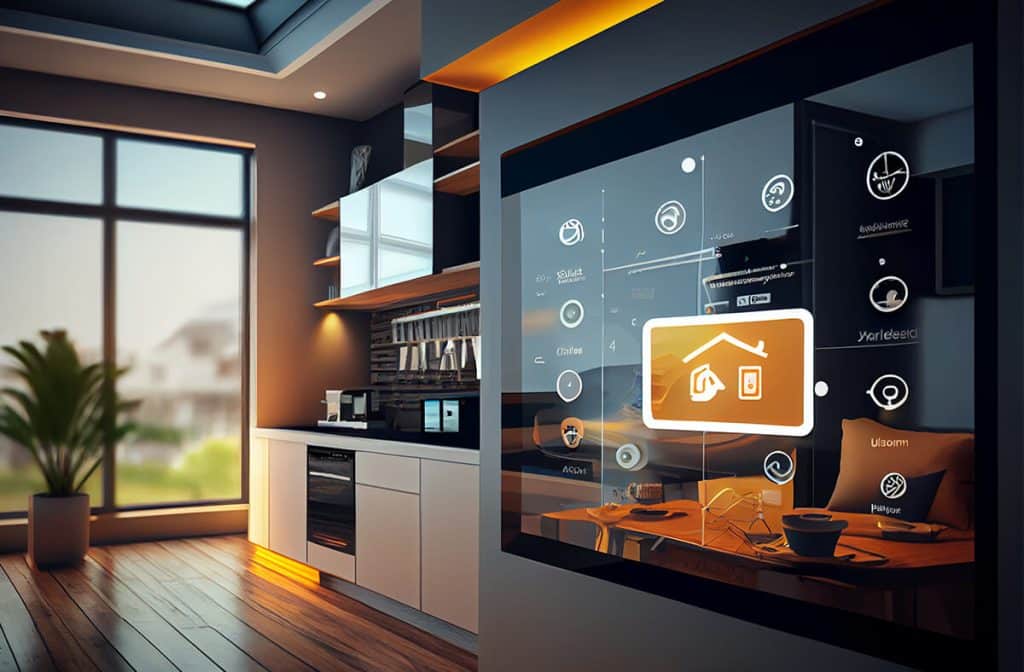- 🏠 Smart homes use technology and internet connectivity to automate and enhance efficiency.
- 🔥 Smart home tech, once exclusive, is now more accessible and affordable.
- 🌐 Major ecosystems for smart devices include Samsung SmartThings, Google Home, and Apple HomeKit.
- 🤝 A new common language called Matter enables different smart home devices to work together.
- 💡 Smart lights and switches are easy and inexpensive entry points for smart home tech.
- 🌡️ Smart thermostats help save energy and money by creating programmable temperature settings.
- 📹 Video doorbells and security cameras enhance home security and can increase home sale speed.
- 🔒 Smart locks provide keyless entry and real-time access monitoring.
- 🚨 Smart home security systems have become more affordable, offering various safety features.
- 🥛 Smart appliances can perform advanced tasks like notifying when items are expiring or enabling remote operation.
- 🔒 Smart home devices come with privacy and cybersecurity risks; basic precautions are necessary.
- 📈 Start small with one or two devices and gradually expand your smart home setup.
Welcome to the ultimate guide on building your smart home. If you’re considering upgrading your living space with smart home technology, you’re not alone. From increasing efficiency to bolstering security, smart home innovations offer a myriad of benefits. In this comprehensive guide, we’ll walk you through everything you need to get started, from basic devices to high-end systems, ensuring your transition to a smart home is smooth and informed.
Introduction to Smart Home Technology
Smart homes are no longer a futuristic concept but a present-day reality that’s becoming increasingly accessible and affordable. By leveraging technology and internet connectivity, smart homes automate tasks and enhance efficiency, transforming how we interact with our living spaces.
Why Choose Smart Home Technology?
The adoption of smart home technology offers several benefits:
- Efficiency and Convenience: Automate everyday tasks such as adjusting the thermostat, controlling lights, and managing security systems.
- Accessibility: Once exclusive to the wealthy, smart home technology has become more affordable and user-friendly.
- Enhanced Security: Increase the safety of your home with smart locks, security cameras, and complete security systems.
- Energy Savings: Smart thermostats can significantly reduce energy consumption, saving you money on utility bills.
- Future-Proofing: As technology evolves, your smart home can adapt and grow with new devices and capabilities.
Major Smart Home Ecosystems
Before you start investing in smart home devices, it’s crucial to understand the major ecosystems that support these innovations:
Samsung SmartThings
Samsung’s SmartThings platform offers a wide range of compatible devices that allow you to automate and control various functions within your home.
Google Home
Google Home integrates seamlessly with Google’s ecosystem, enabling voice-controlled assistants and a host of automated devices.
Apple HomeKit
Apple HomeKit provides an intuitive interface for iOS users, ensuring a cohesive experience across Apple’s range of compatible smart devices.
Common Smart Home Devices
Smart Lights and Switches
Smart lighting is one of the easiest and least expensive entry points into home automation. Both smart bulbs and switches can be controlled remotely via an app or voice assistant. Additionally, they offer energy savings and the ability to set moods for various activities, such as watching movies or hosting parties.
Smart Thermostats
Popular models like Nest and Ecobee are top sellers in North America. These devices allow for programmable temperature settings based on your schedule, ensuring that your home is heated or cooled only when needed. This not only enhances comfort but also reduces energy bills.
Security Cameras and Video Doorbells
Devices such as Ring and Nest doorbells come with built-in cameras, allowing you to monitor and communicate with visitors from anywhere. Research indicates that homes equipped with these devices sell faster than those without, making them excellent investments for safety and property value.
Smart Locks
Smart locks offer keyless entry and the ability to monitor your home in real-time. You can grant temporary access to guests or service providers and receive notifications about who enters and exits your home.
Smart Home Security Systems
Modern security systems have become more affordable and versatile. Many systems include doorbell cameras, smart locks, and even smoke and carbon monoxide detectors. They can be professionally installed or set up as DIY projects.
Smart Appliances
Next-level smart home devices include smart refrigerators that notify you about expiring food or provide remote access to see inside. Washing machines and dryers can be controlled via your smartphone, providing unparalleled convenience.
Privacy and Cybersecurity Concerns
While smart home devices offer numerous advantages, they come with privacy and cybersecurity risks:
- Privacy Issues: Companies may store and analyze your data, such as voice commands or usage patterns.
- Cybersecurity Risks: Vulnerabilities in smart home devices can be exploited by malicious actors. Protect your smart home by password-protecting your wifi, using strong passwords, keeping devices updated, and enabling two-factor authentication when possible.
Getting Started with Your Smart Home
Start Small and Scale
Begin with one or two devices to get a feel for how smart home technology works. Most people start with smart lights due to their simplicity and then expand to include thermostats, locks, and security cameras.
Integrating New Devices
As you add new devices, ensure they are compatible with your existing setup. Using ecosystems like Samsung SmartThings, Google Home, or Apple HomeKit can make this process smoother.
Automation for Efficiency and Security
Automate routines to increase efficiency. For example, you could program lights to turn on at sunset or lock all doors with a single voice command before bedtime.
Conclusion
Converting your home into a smart home doesn’t have to be an overwhelming process. By starting small, staying informed about ecosystems and compatibility, and prioritizing security, you can enjoy the numerous benefits that smart home technology has to offer. From increased efficiency and convenience to enhanced safety and energy savings, the smart home revolution is here to make your life easier and more comfortable.
Embark on your smart home journey today and experience the future of living.






